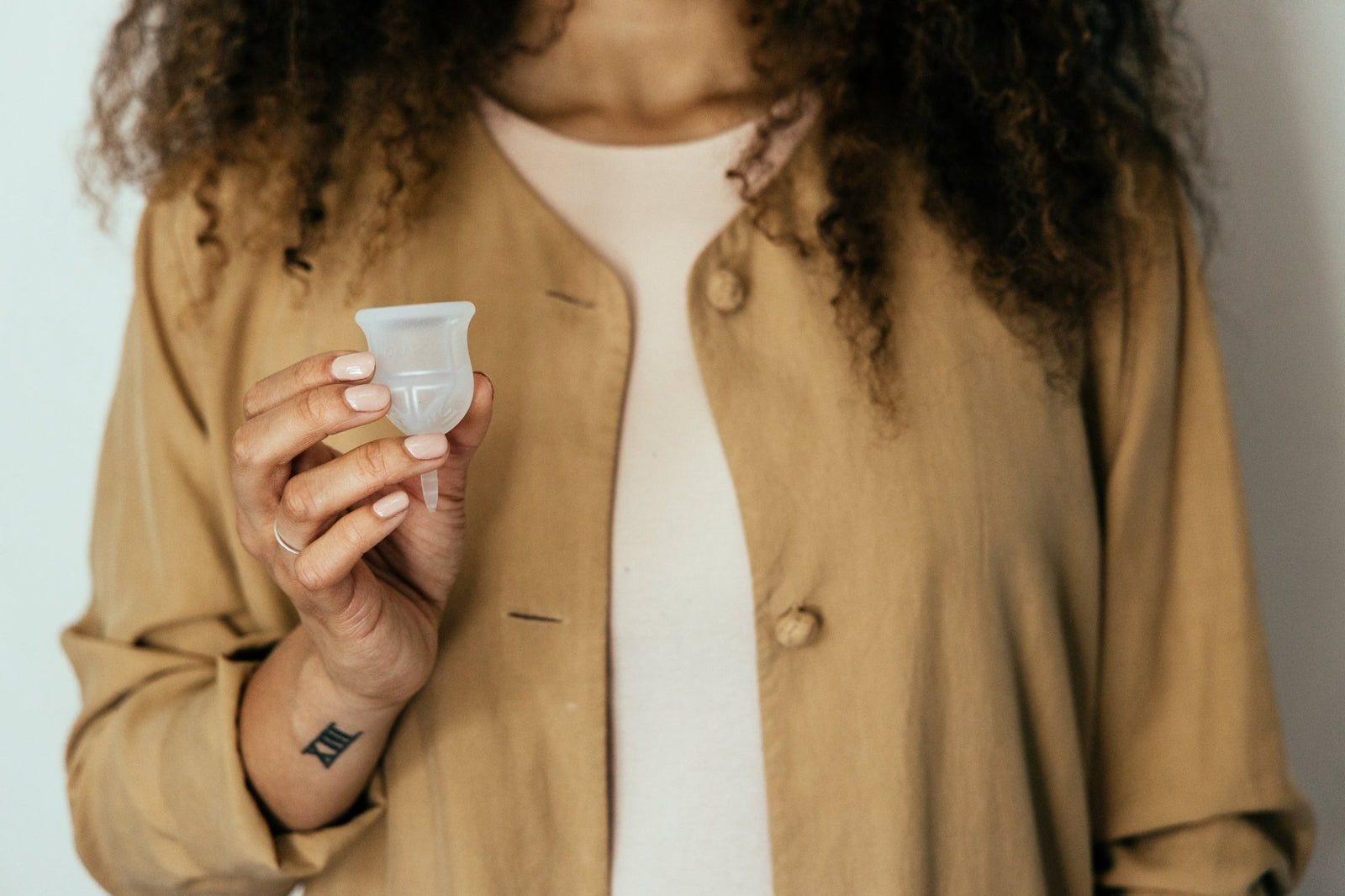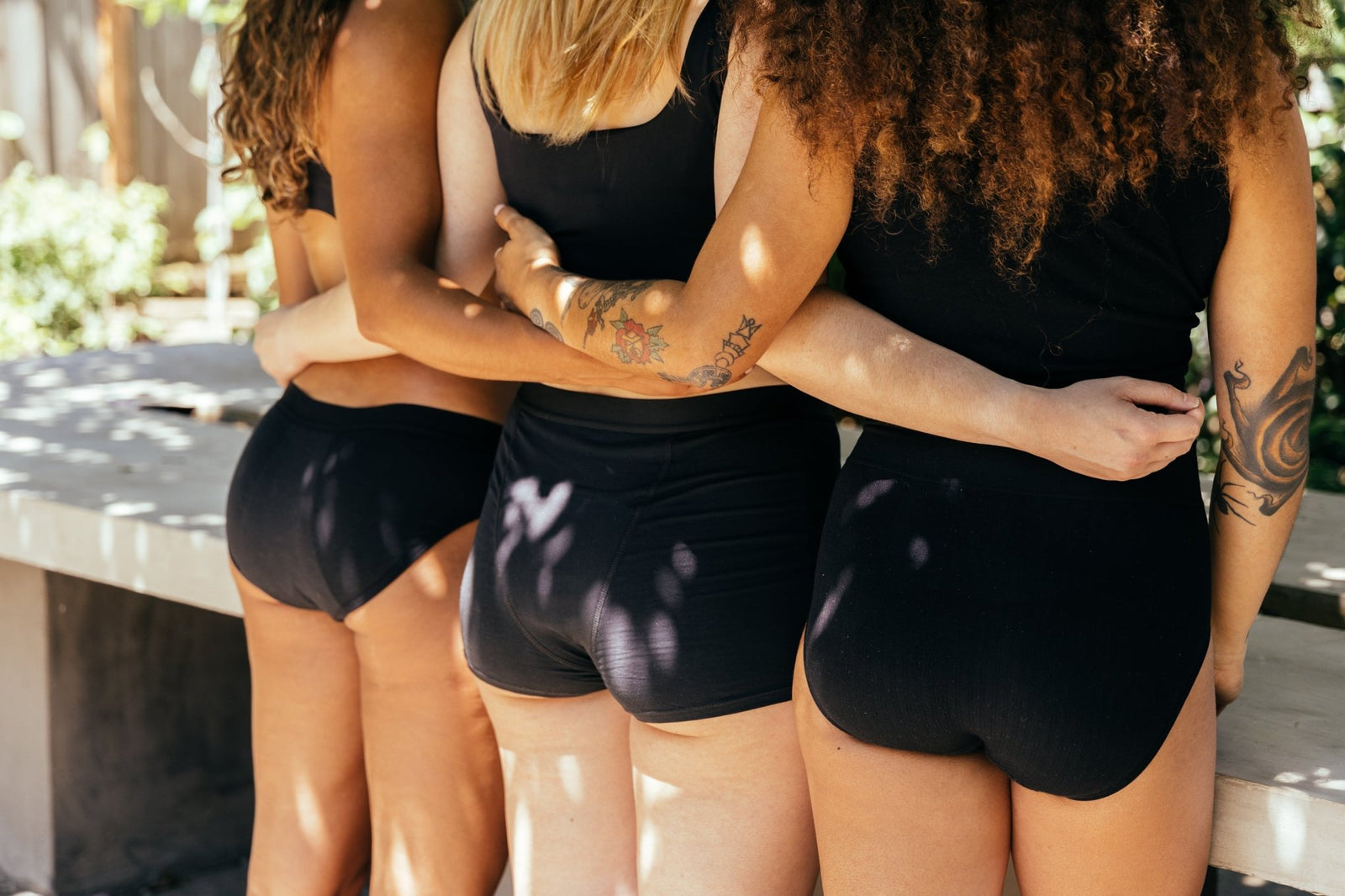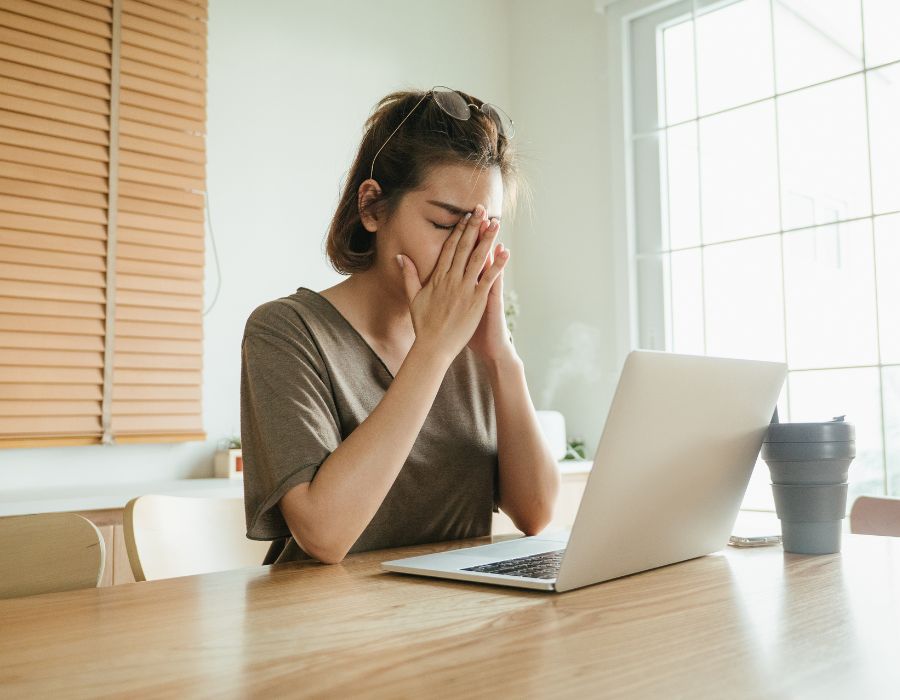
Menstruation is controlled by a balance of reproductive hormones in the body. When stressed, the body produces more cortisol and corticotropin-releasing hormone (CRH)––also known as the stress hormones––which can suppress normal levels of reproductive hormones, including estrogen and progesterone. Stress can have such a dominant influence on your hormones, that in many cases, it is the culprit for late or missed periods. In other cases, however, stress might just cause an exaggeration of PMS or period symptoms. Either way, this can be the body’s way of alerting you that your hormones are not in balance.
We’ve rounded up 7 natural remedies for managing stress during your period:
1. Eat healthy.
You may crave simple carbs (sweet and salty) when dealing with period stress. However, sugar spikes your blood sugar agitating stress in the body. If you’re really craving something sweet, go for a piece of fruit or some dark chocolate which has less sugar and is full of antioxidants.
Channeling your food intake to include hormonally supportive substances will help relax and support the adrenal glands. The adrenal glands, in turn, help reduce the amount of cortisol produced and ultimately break down the stress cycle in your body.

The body needs vitamin C, B vitamins, magnesium, zinc, and iron to best support your adrenal glands. Consider eating more dark leafy greens, quality proteins, or avocados to help. For more great eating tips, check out our post on essential vitamins and foods you can eat to make sure your body is getting what it needs.
2. Get plenty of sleep.
Try to get the recommended 7-9 hours of sleep each night. There are several studies that suggest sleep will naturally reduce stress in the body. You’ll have better chances of getting enough sleep if you program the body by creating a regular sleep schedule. Here’s some sleep hygiene tips to help:
-
Go to bed at the same time every night.
-
Turn off screens and put away your phone an hour before bed to help your body transition into a state of rest. Read a book instead.
-
Make your bedroom dark and cool to help you fall asleep.
-
Add bedtime yoga to your routine.
-
It's not easy to sleep when you have period cramps so, instead of taking medicine, try using a natural Period Cramp Cream with Arnica. Spread the ancient herb on your belly, grab a heating pad, and sweet dreams!
-
Make your bedroom comfortable and sanctuary-like. Being surrounded by clutter and undone projects before bed can make it difficult to fall asleep.
-
Make your bed a place for sleep and sex only. Not work.
-
Avoid caffeine in the second half of the day.
-
Exercise during the day.
3. Exercise regularly.
Physical activity and exercise produce endorphins that act as natural painkillers for cramps, while also improving sleep and reducing stress. Sadly, exercise often (not always) has been seen as a form of punishment for getting your body ‘in shape’. Instead, try to think of exercise as self-care and do the physical activities that bring you joy. Listen to your body. Depending on where you’re at in your menstrual cycle and what your hormones are doing, you may feel like cardio or strength training some weeks, and other weeks you may prefer yoga or a walk. If you want to better understand how your hormone cycle impacts your sleep and energy levels and which exercises to do each week, we go more in-depth here.
There’s evidence that shows engaging in a regular exercise schedule reduces period symptoms that could be a result of stress, especially severe cramps. Likewise, the endorphin release will help boost your mood and relieve irritation that comes with stress (so you don’t snap at that customer care agent that does finally try to help you on the phone after waiting on hold).

4. Give relaxing techniques a try.
Relaxation techniques can be very useful in reducing PMS, period, and stress symptoms. Here’s some we’ve tried and love:
-
Get a regular massage. On a low budget? We love this little shiatsu massager that heats up and can be moved to target specific areas of the body.
-
Go with the (yoga) flow. Here’s some yoga poses proven to help reduce stress and period symptoms, and these poses are great for relaxation.
-
Try one of these 6 breathing exercises that take 10 minutes or less.
-
Take a hot shower or bath followed by a self-care skincare routine for your body, face, and don't forget your most sensitive bits - try a natural calming vulva oil to soothe vaginal dryness or prevent ingrown hairs (for external use only). It will leave you feeling like a goddess.
-
Do 10 minutes of meditation. Try using a free app, like Calm or Headspace to guide you, if you’re new to meditation.
-
Burn an aromatherapy candle or put a few drops of essential oils in your hands, rub together, and cup over your nose while taking deep breaths. Lavender, eucalyptus, bergamot, lemon, ylang-ylang, or jasmine all have calming properties.
-
Take a hot bath with Epsom salt or essential oils.
5. Spend time with friends.
Call a friend for a chat, or schedule some time together. Don’t underestimate the power of community and social support to reduce stress. Sometimes just having someone to listen, make you laugh, or get out of your own head is exactly what you need.
Get your mind off the source of stress and do an activity you love with your favorite sidekick. If you’re feeling strapped for time, kill two birds with one stone and invite a friend to attend a yoga class or exercise with you. Get some tea together afterward. Promise––you’ll feel better.

Photo by Monika Grabkowska
6. Avoid alcohol and caffeine during your period.
Coffee is a diuretic and can be dehydrating AF, causing digestive upset and cramping leading up to and during your period. We all need the caffeine boost sometimes, but try getting it from matcha or herbal teas instead. Matcha is full of antioxidants that fight free radicals in the body, boosting your immune system. The L-Theanine amino acid in matcha helps keep your energy consistent and your brain focused and relaxed vs. the wired and tired feeling you might get from coffee drinks (especially, the sugary kinds) that have you crashing two hours later.
Similarly, while alcohol may help you to temporarily relax, it will likely make you feel worse in the long-run. Both caffeine and alcohol are likely to impact your ability to get quality sleep as well. Try herbal tea or water instead to reduce bloating, cramps and stress-related anxiety.
7. Herbal supplements and tea
If you have ongoing or severe stress from life circumstances that won’t go away in a few days or even a period cycle, you might consider adding a supplement into your routine or drinking herbal tea regularly. Ginseng, black currant, and Rhodiola are known for supporting your adrenal glands with energy production, while ashwagandha, skullcap, passionflower, and valerian are better for helping fight anxiety, and Chaga is full of rich antioxidants to boost your immune system and overall health. With loads of adaptogen properties, these supplements can help you combat stress and fatigue, reduce depression symptoms, and improve brain function.
Stress can take its toll––both physically and emotionally. It’s okay to make self-care a priority (and not feel guilty about it). If you find your stress to be interfering with your ability to do life, you should talk to your doctor about available options and support.
Have a stress-relieving tip you wanna share? We’re all ears! Let us know in the comments below. We’re always down to learn from you all.
"If the ocean can calm itself, so can you. We are both salt water mixed with air." — Nayyirah Waheed

|
Polly Tlg has always been interested in holistic and alternative ways of healing–– Ayurveda and yoga are among her favorite healing methods. Deeply intuitive, she finds true healing surpasses the boundaries of the physical body and embraces the emotional, energetic and subtlest layers of our being. Believing that nature can be the best source of human health, Polly uses her knowledge to help others learn how to be healthy and beautiful using natural remedies. |














